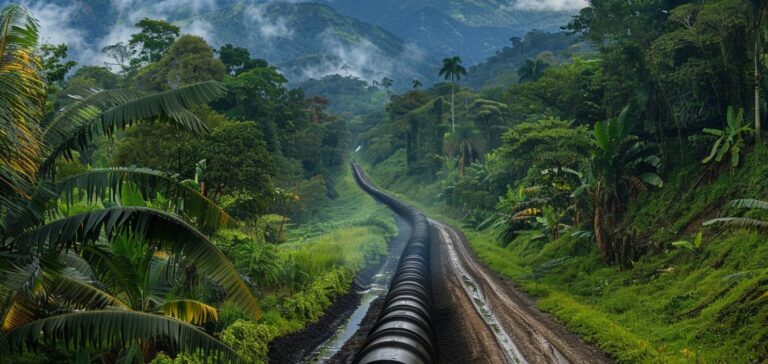A landslide on 13 March 2025 caused the rupture of the Sistema de Oleoductos Trans-Ecuatoriano (SOTE) pipeline in the coastal region of Esmeraldas, Ecuador. This incident led to an oil spill that contaminated the Esmeraldas River, affecting several local communities.
Declaration of environmental emergency
In response, the Emergency Operations Committee of the city of Esmeraldas declared an environmental emergency on 14 March 2025. Mayor Vilko Villacis reported unprecedented damage and ordered the suspension of water pumping to the local aqueduct, urging residents to ration their potable water consumption.
Petroecuador’s response
State-owned company Petroecuador activated an emergency plan to contain the spill from the damaged pipeline. At this stage, the company has not estimated the volume of losses. The SOTE, part of the trans-Ecuadorian network, can transport up to 360,000 barrels per day over 500 kilometres, according to Petroecuador.
Impact on Ecuador’s oil production
Ecuador produces approximately 475,000 barrels of oil per day and exports about 72%, according to official figures. The rupture of the SOTE pipeline could affect the country’s capacity to transport and export oil, potentially impacting national revenues from this resource.
Community efforts and outlook
Residents of Cube, a locality in the Quinindé canton, attempted to curb the spread of hydrocarbons by building dikes and canals. Fernando Gandara, a local farmer, stated that the mud mixed with oil had reached all slopes and that the river had carried hydrocarbons over many kilometres.






















